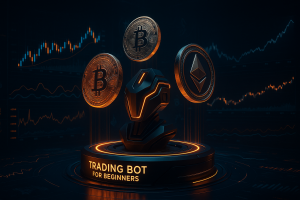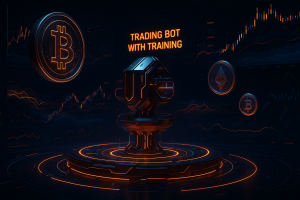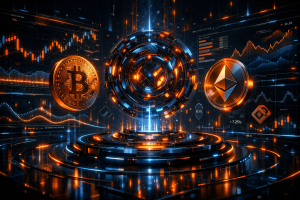Pros and cons of cryptocurrency

In recent years, cryptocurrencies have become one of the most talked-about financial trends worldwide. They have captured the attention of both tech enthusiasts and financial analysts alike. However, digital assets evoke a mix of excitement and skepticism, with their own set of advantages and disadvantages.
The primary benefit is their decentralised nature. Most virtual assets operate on technologies that record data across the most active users around the globe. This creates a system that is resistant to control by any central authority, such as a bank or government.
Traditional banking systems and payment networks like SWIFT charge hefty fees for processing transfers. Cryptocurrencies enable cross-border transactions at significantly lower costs, often bypassing the banking system altogether.
Built on blockchain technology, digital assets offer a high level of transparency. Additionally, they ensure robust security through complex cryptographic algorithms. Hacking a blockchain or altering its data is extremely difficult, making it a highly reliable option for storing value.
While decentralisation is a major advantage, the lack of regulation presents numerous challenges and risks. Cryptocurrency exchanges, platforms, and wallets are not always protected by government oversight. As a result, in cases of theft or fraud, users often have little recourse to recover their funds.
Regulation of cryptocurrencies varies widely across different countries: in some jurisdictions, they face strict bans or tight controls, which limits their use and potential for investment.
Although blockchain systems are highly secure, it doesn’t mean any ecosystem is completely immune to attacks. Wallets and exchanges remain targets for hackers. In recent years, several high-profile breaches have resulted in millions of dollars lost from major transactions.
Despite ongoing development, the use of cryptocurrencies in the broader economy remains limited. Some businesses and retailers accept them as a form of payment, but mainstream adoption is still a long way off.
Moreover, many cryptocurrencies require significant energy consumption for mining and network maintenance. The process involves solving complex mathematical problems using powerful computing hardware, which leads to enormous energy use and environmental concerns raised by advocacy groups.
Cryptocurrencies are an innovative phenomenon that continues to reshape the financial landscape. They offer decentralisation, lower transaction fees, the potential for high returns, and a high level of security. However, they also come with drawbacks: volatility, limited regulation, cybersecurity risks, and slow mainstream adoption.
Category news: Security and Education
-

Complete Guide to Automated Trading via API
Automated trading via API is a way to connect a trading platform to a cryptocurrency exchange so that trades are opened and closed automatically according to predefined logic, without manual involvement and without granting access to funds. On B-World, the API is used to retrieve data and place orders, while risk control and strategy management […]
-

Trading bot with market forecasting
Trading bot with market forecasting capabilities is far more than just an algorithm that follows preset rules. It employs machine learning techniques, neural networks, statistical modelling, and historical market data to build probabilistic models of price behaviour. Such a bot can “learn” from past market situations and make decisions based not only on current data […]
-

Trading bot for beginners
In the world of finance, an increasing number of people are eager to try their hand at trading. Some are attracted by the prospect of making money, while others are drawn by curiosity about the markets and strategies. However, a beginner who first opens a chart filled with lines and candles can quickly become overwhelmed. […]
-

Trading bot with training
A trading bot is a software programme that automates the trading of assets (stocks, cryptocurrencies, futures, etc.). Self-learning bots are capable of analysing data, identifying patterns, and adjusting their strategies based on experience. Unlike traditional algorithmic bots, they don’t follow strictly predefined rules; instead, they can modify their behaviour according to new information. Data collection […]
Latest news
-

Complete Guide to Automated Trading via API
Automated trading via API is a way to connect a trading platform to a cryptocurrency exchange so that trades are opened and closed automatically according to predefined logic, without manual involvement and without granting access to funds. On B-World, the API is used to retrieve data and place orders, while risk control and strategy management […]
-

Bot that trades on an exchange
A trading bot is a program capable of automatically analysing the market and executing trades based on predefined algorithms. This technology is reshaping the traditional perception of trading and makes it possible to generate income even for those without deep knowledge of economics. Developing and using such a bot requires not only technical skills but […]
-

DOT
DOT is the native token of the Polkadot ecosystem – a next-generation blockchain designed to unite multiple independent networks into a single decentralised infrastructure. Unlike traditional cryptocurrencies, which operate within a single blockchain, Polkadot enables different networks to interact with one another, exchange data and resources, without sacrificing security or speed. DOT plays a central […]
-

Forex bots
The Forex market is the largest financial marketplace in the world, with daily trading volumes exceeding $6 trillion. It is open to everyone – from banks and investment funds to retail traders. Yet the key question many people ask is simple: can you really make money here? The answer is yes – with the right […]

